IS DIETARY FIBER BENEFICIAL TO MY BODY?
Yes, it is. That is why we often hear-“Include plenty of whole grains in your diet”. Fiber can help to prevent constipation, lower cholesterol, and more.
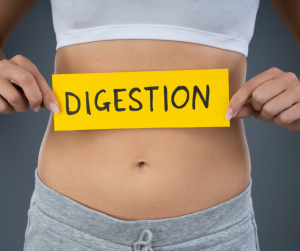
DO I NEED FIBER IN MY DIET?
Healthy eating and consuming a well-balanced diet are important at every age whether you are young or in your senior years. Eat a variety of fruits, vegetables, fiber, whole grains, lean protein foods, and low-fat dairy foods.
https://www.myplate.gov/tip-sheet/make-half-your-grains-whole-grains
When deciding what grains to eat, choose those that are full of nutrients and limited in added sugars, saturated fat, and sodium. Eating fiber and whole grains may reduce the risk of certain chronic diseases, such as coronary heart disease, diabetes, and some types of cancer. Fiber-containing foods may help with weight loss, weight control, and digestive health. So, dietary fiber, may help regulate digestion, and reduce cholesterol levels and obesity risks. Fiber-containing foods can contain B vitamins, such as thiamin, riboflavin, and niacin, which play an important role in metabolism and ensures a healthy nervous system. https://www.nutrition.gov/topics/whats-food/fiber
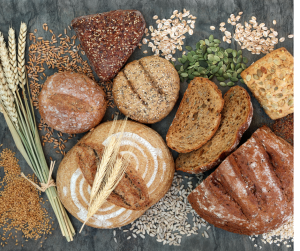
WHAT ARE SOME FOODS THAT CONTAIN FIBER?
- 100% whole grain bread
- Popcorn
- Fruits and vegetables
- Whole grain cereals
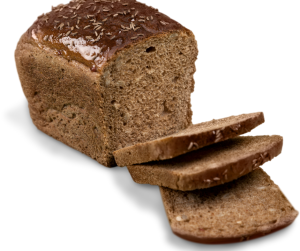
WHAT ARE WHOLE GRAINS?
All grains begin as whole grains, which have three parts of the grain kernel: the bran, the germ, and the endosperm. Unlike refined grains that are processed to only contain the endosperm, whole grains contain the three original parts and provide great sources of vitamins and fiber. Some refined grains are “enriched,” so some nutrients are added back to the grain, but not fiber.
Many foods display “whole wheat” or “whole grain” on their package, but you have to check the label for the whole grain stamp. This stamp ensures the food is 100% whole grains or provides a full serving of whole grains. If you haven’t seen the whole grain stamp before, the next time you are in the grocery store, read some food labels to see what I am talking about. https://wholegrainscouncil.org/whole-grain-stamp
ADDING WHOLE GRAINS TO YOUR DIET
While eating whole grains may be something new for you, it can be easy to incorporate them into your diet. For those of you that are already consuming a diet rich in whole grains – great job!
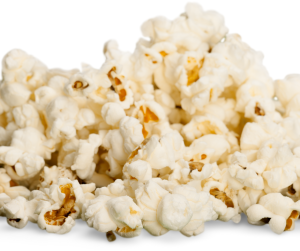
WHAT FOODS CONTAIN WHOLE GRAINS?
- Popcorn
- 100% whole wheat bread
- Oatmeal
- Millet
- Buckwheat

Here are 10 tips to add whole grains to your daily diet.
- Buy whole-grain bread, muffins, oatmeal, and/or dry cereals to eat for breakfast.
- Use whole wheat bread instead of white bread when making toast or sandwiches.
- Look for whole wheat dinner rolls rather than white dinner rolls.
- Try brown rice instead of white rice.
- Use whole grain pasta instead of white pasta.
- Make pizza crust using whole wheat flour.
- Purchase whole wheat crackers, whole wheat pita chips, or popcorn to eat during snack time.
- Buy whole wheat or corn tortilla shells.
- Switch to whole grain flour rather than refined flour when baking.
- Try adding less common whole grain foods like quinoa, millet, buckwheat, barley, or wild rice.
HOW MUCH FIBER IS RECOMMENDED?
Dietary fiber needs vary. Generally, dietary fiber intake is recommended at 14 grams per 1,000 calories of food, eaten daily. This means, for a 2,000-calorie-per-day diet, the daily dietary fiber intake would be approximately 28 grams of fiber.
https://ask.usda.gov/s/article/How-much-dietary-fiber-should-I-eat

IMPORTANT REMINDER:
Always follow the advice of your healthcare provider when it comes to your health, specific dietary requirements, fiber needs, and well-being.
The benefits of healthy eating are numerous. Add more whole grains to your menu plans, grocery list, and your diet today. Eat a well-balanced, varied diet, with moderately sized potions every day.
Stay healthy. Eat healthy. Enjoy your life.
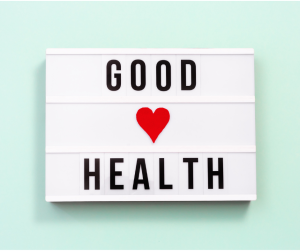
An equal opportunity institution,
#FCSbroward
 22
22
